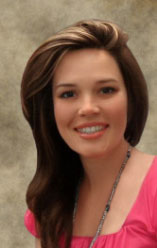
“Writing gets under your skin and you find yourself needing to write, almost like feeding an addiction,” Hartman said.
Hartman just finished serving as APU’s sixth Writer-in-Residence, a position she said, fell almost serendipitously into her lap.
She’d just been approached to teach a writing and publishing program for APU and had received a publishing contract for a regional press. At that same time APU was seeking its sixth Writer-in-Residence.
“Everything just seemed to fit,” Hartman said.
Her role as Writer-in-Residence was fairly straightforward: provide a writing education experience available to the entire APU community, assist with Turnagain Currents, and be a resource for students.
“My goal was to stuff as much of my own writing knowledge into students’ brains as I possibly could, and then run away fast before they exploded,” Hartman joked.
Helping writers achieve their myriad goals has long been Hartman’s cornerstone. Beyond being a writing instructor and the Writer-in-Residence at APU, Hartman also serves as the President of the Alaska Writers Guild. In that role, she helps burgeoning writers reach their publishing goals.
Over the course of the semester, Hartman organized a series of lectures, calling upon her buddies in the Alaska writing and publishing sphere.
Those lectures included topics like self publishing and social media, the publishing process, grants writing, and the two most attended: blogging and basic web design.
“While I know a ton about writing and publishing, there are lots of people who know much, much more,” Hartman explained. “I wanted my students to get as much information across the writing and publishing spectrum as possible — from traditional submission, to pitching, to blogging, even social media and basic author website building — and their expertise proved invaluable.”
Having that variety of speakers, Hartman said, was particularly beneficial, as her students had a range of writing goals.
“In the class alone we had nonfiction writers, proposal writers, science fiction writers, blog writers, game writers — the list goes on,” Hartman said. “So each speaker brought something different to the table that students could glean from as they needed.”
Hartman said she hoped having the spectrum of speakers would also both coax new prose from them, as well as give them the tools they’d need in the next stage of their writing careers.
Beyond the weekly series, Hartman also curated a Publishing Panel, with speakers brought in specifically to offer perspective on the complex web that is the modern state of publishing.
“Each of the authors who spoke found their publishing success in very different ways, and it’s important for students to realize that their route to publishing success might be even more different still,” Hartman explained.
Of the experience, Hartman said her favorite part was that most of the time she felt like the student, not the other way around.
“The writing realm is depthless,” Hartman said. “Add to that pitching, social media, and the like, and you can never know the limits. But the class was designed around this fact: with open discussion, dialogue, and constructive critique we can learn not only from the instructor or speaker, but from fellow students as well.”
